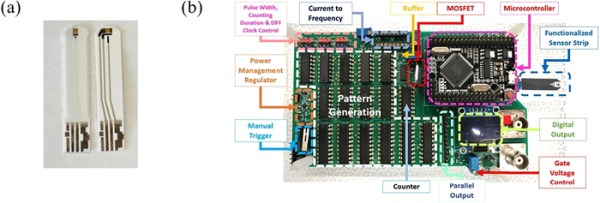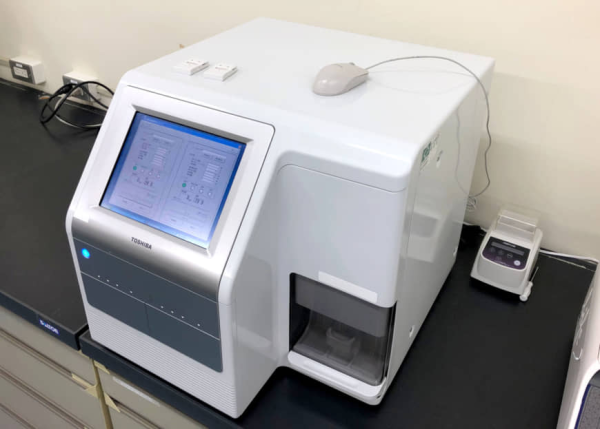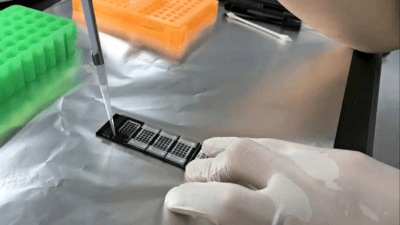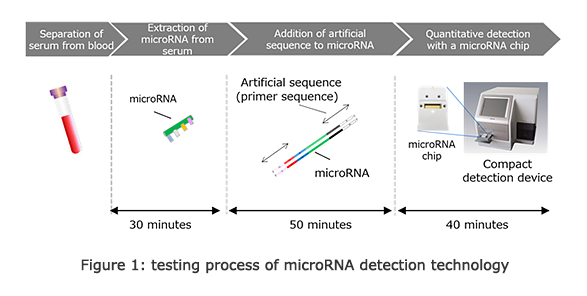More and more biomarkers that can help in the early diagnosis of diseases like cancer are being discovered every year, but often the effective application relies on having diagnostic methods that are both affordable and as least invasive as possible. This is definitely true in the case of breast cancers, where the standard diagnostic method after seeing something ‘odd’ on a scan is to perform a biopsy so that a tissue sample can be tested in a laboratory. What [Hsiao-Hsuan Wan] and colleagues demonstrate in a recently published research article in the Journal of Vacuum Science & Technology B is a way to use saliva on disposable test strips to detect the presence of cancer-related biomarkers. Best of all, the system could be very affordable.
The two biomarkers tested in this experiment are HER2 (in 10 – 30% of breast cancer cases) and CA 15-3, both of which are indicative of a variety of cancers, including breast cancers. According to the researchers, the levels of these biomarkers in saliva can be correlated to those in blood serum. Where other biosensors may include the read-out circuitry – making those disposable and expensive – here the disposable part is the test strips which are plated with electrodes.
Continue reading “Low-Cost Saliva-based Biosensor For Cancer Detection”














